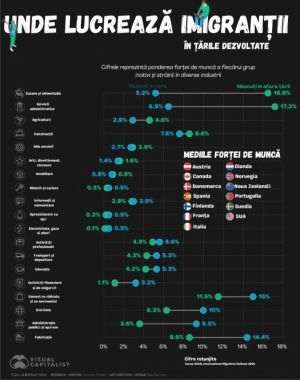• The IMF hopes to get written promises that the foreign banks won"t reduce their exposure to the Romanian market
The Government has completed the negotiations with the International Monetary Fund (FMI), the European Union (EU), the World Bank (WB) and other international financial institutions for a support package of worth 20 billion Euros, Jeffrey Franks, head of the IMF mission to Romania, announced.
Out of this amount, 12.9 billion will come from the IMF, 5 billion from the European Union, between 1 and 1.5 billion Euros will come from the World Bank and up to 1 billion Euros from other international financial institutions such as the European Bank for Reconstruction and Development (EBRD) and the European Investments Bank (EIB), the IMF official said.
He announced that, in the next two years, the EBRD will invest half of the allocated 1 billion Euros in the financial sector, and the rest in other sectors of the economy, such as energy and national and city infrastructure.
In an attempt to prevent further deterioration of Romania"s financial and economic situation, Jeffrey Franks said: "We have determined, together with the authorities, that a two-year standby credit is best solution for Romania, because the world"s economic problems will continue, and Romania will also feel their effects for a long time".
This multilateral financial package will lead to the improvement of the management of public finances, of tax administration, help improve the efficiency of the tax policy and of public spending as well as the improve the sustainability of the pension system, the IMF communiqué states. Franks added that the program includes additional allocations for social protection programs, as well as steps for protecting retirees and low income public sector employees, who will be affected by the reforms in these sectors, according to the same press release.
• The requirements of the agreement
By this agreement, the Government has pledged to take a series of steps that will keep this year"s budget deficit at 4.6% of the GDP, according to Romanian standards. According to the European standards (ESA 95), Romania"s state budget deficit for 2009, as estimated by the EC will be 5.1% of the GDP, as against 5.3% of the GDP last year, EC representative, Filip Keerman said.
Jeffrey Franks added, that if the Government hadn"t made any decision to cut budget spending, Romania"s budget deficit could have reached 8-9%.
The European Commission Official explained: "It is important that our terms match those of IMF. For us it"s important that this year"s deficit be lower than last year"s. We would like Romania to be safe from the excessive deficit procedure by 2011".
According to the representatives of this institution, the monetary policy should stand by its inflation target, as well as keep the flexibility of the exchange rate, in order to keep the stability of the banking system.
According to the terms of the agreement, Romania needs to improve the budget execution process and control wage expenses, and also reform the pension system and do a better job at managing public companies, the head of the IMF mission to Romania said. Furthermore, he said there is a need for a reformation of the compensation system: "This does not mean that wages will go down, but rather that the system as a whole needs to be improved". At the same time, the IMF official also said that improved verification of public companies is needed, as some of them have high operating debt.
• The IMF and the Government are trying to convince foreign banks not to withdraw funding from their operations in Romania
Joined by the Romanian authorities, the IMF representatives will consult with the foreign banks, that have subsidiaries in Romania in order to help them maintain a high solvency ratio and to convince them not to withdraw their funds, the head of the IMF mission to Romania further added. "We want to make sure there is a safety net when it comes to capital, so the solvency of Romanian banks needs to remain high", he said.
Franks mentioned that the IMF delegation will be meeting in Vienna today, with the officials of the major banking groups operating in the Romanian banking sector, and that he intends to ask them not to reduce their exposure to the Romanian banking sector. He said he hopes to obtain written commitments from the mother-banks that they will not withdraw their funds, with one possible requirement being the cut of the minimum reserve requirements for banks.
• The cost of the loan that Romania will have to bear
The interest for the loan will vary from one lender to another, according to the installment that will be paid to Romania, officials of the financial institutions involved in the agreement said.
The interest rate on the IMF loan is around 3.5% per annum, in line with the current market conditions, Jeffrey Franks, head of the IMF mission said.
The interest rate for the EU loan is determined by the market, Keerman said, who explained: "Unlike the IMF, the EU must raise money from the market. When the decision is made on the size of the first installment, then will issue this loan and set the interest rate. Usually, it is Euribor plus a few basis points. When we issue the next tranche, we will set a different interest rate, in line with the market conditions", he said, adding that the loan will be granted for a five year period.
The Council is scheduled to reach a final decision on May 5th, after which the exact conditions must be specified and the memorandum of understanding must be drafted, a procedure which will take another three weeks, the EC official explained. "Romania will receive the first installment in July", Keerman added.
FMI didn"t discuss any tax raises for 2009, whereas the IMF"s requirements for next year will be discussed in due time, subject to the way the budget will evolve this year, Jeffrey Franks, head of the IMF mission to Romania said.
He also said that the wage bill should be gradually cut in the upcoming period, from its current size of around 8% of the GDP, as wage expenses for the public sector nearly doubled, in the last three years.
"Salary spending needs to be kept under control. Compared to the GDP, the ratio of salary spending doubled in the last three years, and I believe that its has exceeded the level the Government wanted, as they it has reached around 8% of the GDP. I think a gradual cut of the wage bill will be needed", Franks said.
• The agreement with the IMF lowers Romania"s perceived risk and helps the leu appreciate
The cost of insuring Romania"s debt against loan restructuring or payment default dropped Wednesday by approximately 50 basis points, after the International Monetary Fund (FMI) announced it has reached a loan agreement with Romania, according to NewsIn.
Thus, Romania"s cost of insuring five year loans (credit default swaps - CDS) dropped 475-525 basis points, to an average price of 550 basis points, a trader said, quoted by Reuters.
The leu rose abruptly after the official announcement of the IMF of the support package granted to Romania, dropping below 4.28 lei/euro, slightly affecting the quotations of other currencies in the region, which followed the trend.
























































